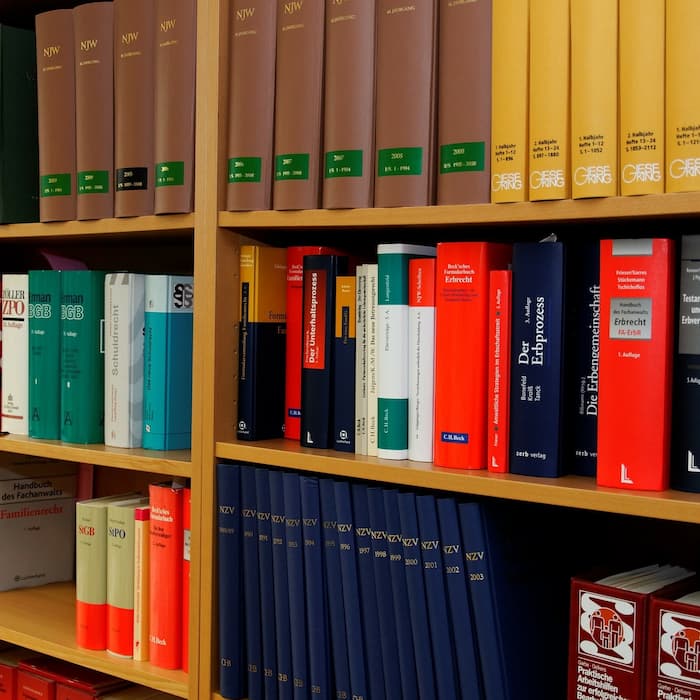Legal
What Happens To A Claim When A Person Dies?

Lawyers can be asked "does the right to claim end on death or can someone else take up the case?" The authors of this article seek to address this question.
Elise Roberts, solicitor, and Ryan Taylor, senior associate, (both pictured below) in the London private wealth disputes team of law firm Hugh James, examine claims by individuals, and what happens to those claims when somebody in the dispute dies.
The editors are pleased to share these ideas, and we value feedback. The usual editorial disclaimers apply. Email tom.burroughes@wealthbriefing.com if you wish to comment.

Elise Roberts

Ryan Taylor
We are often asked “Does the right to claim end on death, or can someone else take up the case?” While proceeding with a case after a death can be difficult, in many cases a claim can be continued, and the issue is determining who has the authority to continue the action.
Who can continue to act in the dispute?
Under section 15 of the Trustee Act 1925, the personal
representatives of the deceased are authorised to accept and
settle claims. The personal representatives effectively step into
the shoes of the deceased and can take legal steps in their
place.
Who are the personal representatives?
Personal representatives for an estate are those with the legal
authority to deal with the estate of a person after their death.
This is usually the executors or administrators of the estate.
As personal representatives have a duty to act in the interests of the estate and its beneficiaries, and maximise the value of the estate – prudent litigation can be necessary.
What can executors do in a claim?
Executors are the people appointed by a will to take control of
an estate when the testator (will maker) dies, and to give effect
to their wishes set out in the will. This involves dealing with
assets, funeral arrangements, payment of debts, and making
distribution of inheritance.
In a court claim, executors would be entitled to receive any damages or award for distribution in accordance with the terms of the will.
The responsibility of proceeding with litigation for an estate can sometimes be difficult, particularly if the deceased appointed a professional body to act as their executors. In those instances, the executors might not have any personal knowledge of the deceased – but still would be expected to act in the best interest of the estate.
What if the executors don't accept probate, or the will
fails to name executors?
If the executors are unwilling or unable to take up their roles –
or no executor was properly appointed – it can fall to the
residuary beneficiaries of the will to apply for a grant of
letters of administration (with will annexed). This is a form of
grant that approves someone other than an executor to administer
the estate.
Although the will is still a valid document, there is no longer an executor to act and so the residuary beneficiaries would be appointed as the personal representatives of the estate in their place.
What if I am an administrator?
Alternatively, where the deceased died without leaving a will,
the nearest relative (as set out by section 46 Administration of
Estates Act 1925) will be entitled to act as administrator of the
intestate estate and apply for a grant of letters of
administration.
In cases where litigation is already underway, a special early grant of probate/administration may be necessary to allow the case to be dealt with effectively whilst further work is undertaken to administer the estate – before applying for a full grant.
What if there are no personal representatives willing and
able to act?
The court can deal with this issue if an application is made.
Here the court has authority for these circumstances under the
Civil Procedure Rules, where rule 19.12 states:
“(1) Where a person who had an interest in a claim has died and that person has no personal representative the court may order –
(a) the claim to proceed in the absence of a person representing
the estate of the deceased; or
(b) a person to be appointed to represent the estate of the
deceased.”
In cases like these, the solicitor acting for the proposed personal representative can seek an order specific to the current proceedings.
What are my duties as a personal
representative?
In the case of pursuing a claim on behalf of the estate, the
personal representatives must be very careful to ensure that they
act in the estate’s best interests. They may be advised to seek
an order from the court protecting them from an adverse costs
order, otherwise known as a “Beddoe order” which authorises the
action a personal representative is about to take.
The duties on personal representatives are onerous and are particularly risky when litigation is involved.
Do all claims survive the death of a
claimant?
Some claims have time limits on when they can be issued and may
only be made while the claimant is alive. This can include claims
for provision from another estate under the Inheritance
(provision for Family and Dependants) Act 1975. It is important
that any limitation on the claims are considered when seeking
advice.
Conclusion
Each case will depend on their individual facts and roadblocks
that may arise. Due to the onerous duties for personal
representatives and complexities associated with litigation of
claims, we always recommend that early legal advice is taken.